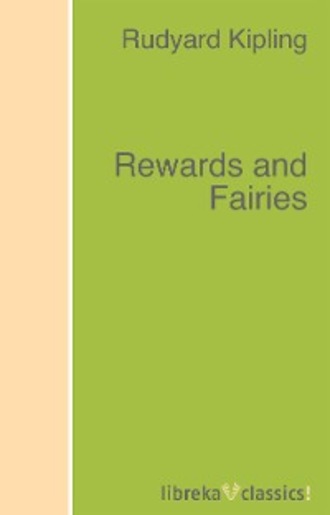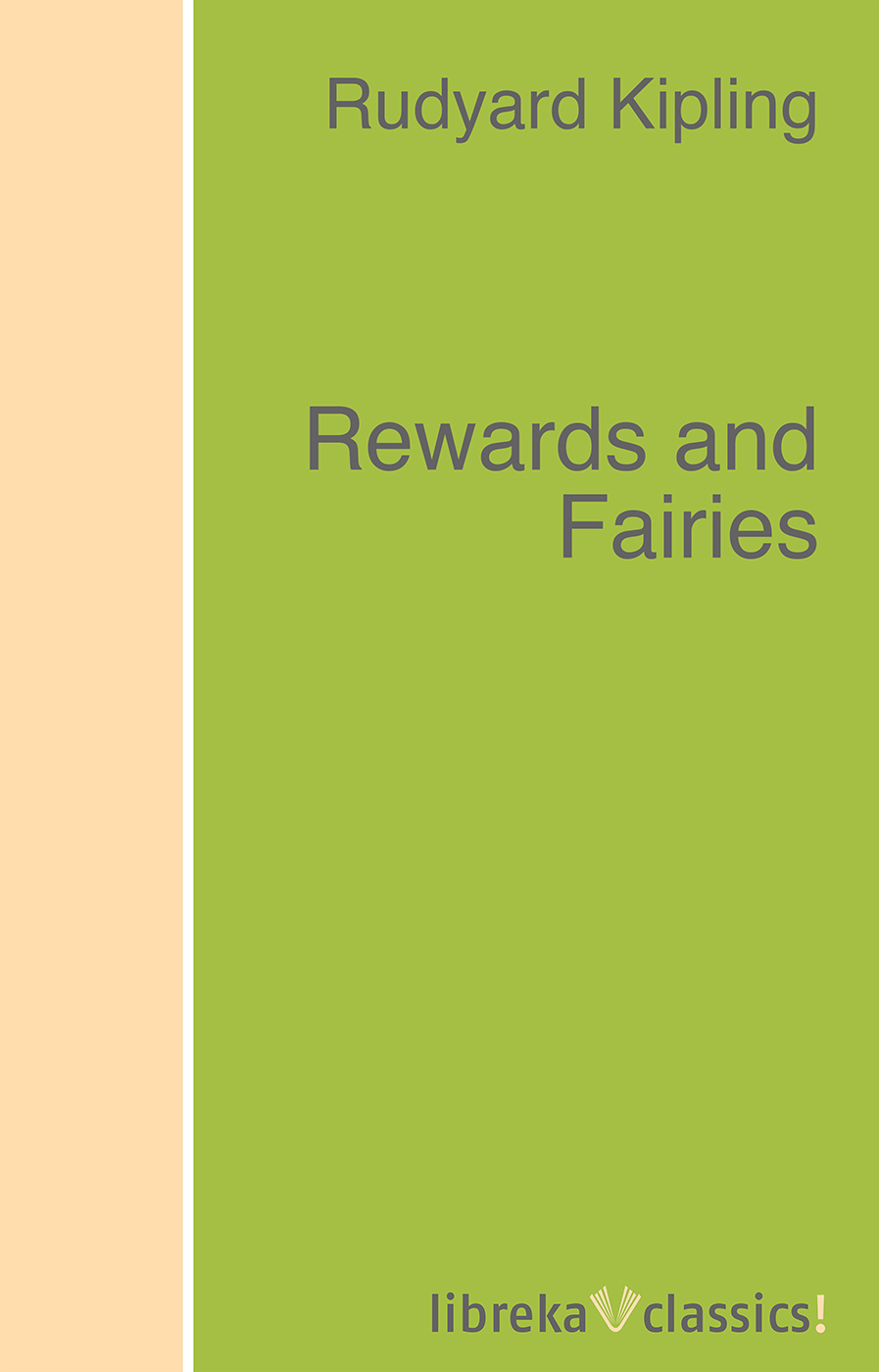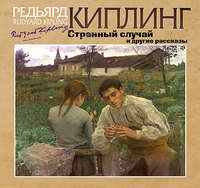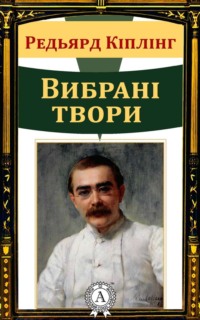
Полная версия
Rewards and Fairies


Titel: Rewards and Fairies
von Scott Hemphill, L. M. Montgomery, L. Frank Baum, John Milton, René Descartes, Baroness Emmuska Orczy Orczy, Karl Marx, Friedrich Engels, Edgar Rice Burroughs, Unknown, Norman F. Joly, Norman Coombs, David Slowinski, Mark Twain, Henry David Thoreau, Stephen Crane, John Goodwin, Nathaniel Hawthorne, Winn Schwartau, Odd De Presno, Sir Walter Scott, Jules Verne, Mary Wollstonecraft Shelley, United States. Central Intelligence Agency, United States, Canada, Willa Sibert Cather, Anthony Hope, Edwin Abbott Abbott, Charles Dickens, Frederick Douglass, William Shakespeare, Bruce Sterling, Franklin Delano Roosevelt, Jane Austen, Thomas Hardy, Sir Arthur Conan Doyle, Edna St. Vincent Millay, Gene Stratton-Porter, Richard McGowan, Frances Hodgson Burnett, United States. Bureau of the Census, Electronic Frontier Foundation, Robert Louis Stevenson, Anonymous, Jerry Bonnell, Robert Nemiroff, Andrew Lang, G. K. Chesterton, John Bunyan, Sunzi 6th cent. B.C., Harold Frederic, Mary Wollstonecraft, Victor Hugo, René Doumic, Upton Sinclair, Virginia Woolf, George Eliot, Thomas Paine, Benjamin Franklin, Plato, Samuel Taylor Coleridge, Ruth M. Sprague, William Dean Howells, Wilkie Collins, Jean Webster, H. G. Wells, Kate Chopin, Mark Eliot Laxer, Louisa May Alcott, Frank Norris, Edith Wharton, S. D. Humphrey, Henry Hunt Snelling, William Morris, Mrs. Susanna Rowson, Christopher Morley, Sax Rohmer, Oscar Wilde, Gaston Leroux, Henry James, Project Gutenberg, Harriet Beecher Stowe, Various, Robert W. Service, A. B. Paterson, Henry Lawson, Jack London, Laozi, D. H. Lawrence, Julius Caesar, Joseph Conrad, W. Somerset Maugham, George MacDonald, Marcus Tullius Cicero, Virgil, Theodore Dreiser, Giuseppe Salza, Rudyard Kipling, ca. 50 BCE-16 BCE Sextus Propertius, Robert A. Harris, William Wells Brown, graf Leo Tolstoy, Omar Khayyám, Michael Hart, Library of Congress. Copyright Office, Coalition for Networked Information, Geoffrey Chaucer, Adam Lindsay Gordon, Hiram Corson, Robert Browning, Amy Lowell, Rupert Brooke, Joyce Kilmer, John Gower, Saki, Kenneth Grahame, Anna Sewell, Martin Luther, Philipp Melanchthon, National Atomic Museum, Alexander William Kinglake, Charles John Cutcliffe Wright Hyne, Amelia Edith Huddleston Barr, James Branch Cabell, Bayard Taylor, Horatio Alger, Booth Tarkington, Hjalmar Hjorth Boyesen, Michael Husted, Émile Gaboriau, Jerome K. Jerome, Stephen Vincent Benét, Edwin Arlington Robinson, J. Frank Dobie, Joseph Rodman Drake, Eliot Gregory, John Fox, John Muir, Richard Harding Davis, Edgar A. Guest, Mary Roberts Rinehart, Thomas Nelson Page, Sir Walter Alexander Raleigh, Rebecca Harding Davis, Charles Alexander Eastman, Zitkala-Sa, Marie L. McLaughlin, J. M. Barrie, Bram Stoker, Hesiod, Edna Ferber, John McCrae, Anna Howard Shaw, Elizabeth Garver Jordan, Frances Jenkins Olcott, P.-J. Proudhon, Eleanor H. Porter, Mary Hunter Austin, Sarah Orne Jewett, Russell Herman Conwell, Daniel Defoe, Henry Benjamin Wheatley, Ambrose Bierce, Nettie Garmer Barker, Martí Joan de Galba, Joanot Martorell, Oliver Goldsmith, Zane Grey, Winston Churchill, Arthur Machen, L. Cranmer-Byng, Torquato Tasso, H. De Vere Stacpoole, Elizabeth Cleghorn Gaskell, Frank Richard Stockton, Rutherford Hayes Platt, Sara Teasdale, Samuel Smiles, W. E. B. Du Bois, Phillis Wheatley, Elbert Hubbard, Richard Jefferies, George Henry Borrow, Sherwood Anderson, Vachel Lindsay, David Graham Phillips, Harry Houdini, Eugene Field, Gustave Le Bon, Henry Brodribb Irving, William Healy, Mary Tenney Healy, Charles Godfrey Leland, Ralph Parlette, Don Marquis, Richard Le Gallienne, Stewart Edward White, Andrew Steinmetz, Madame de La Fayette, Abbé Prévost, Honoré de Balzac, Charles W. Chesnutt, Sara Cone Bryant, William Booth, James Nasmyth, Enrico Ferri, Joe Hutsko, Miriam Michelson, Oliver Optic, Victor MacClure, Calamity Jane, Gertrude Franklin Horn Atherton, Dinah Maria Mulock Craik, Henry J. Coke, Kate Douglas Smith Wiggin, Victor [pseud.] Appleton, Carlo Collodi, Hugh Lofting, John Philip Sousa, Andrew Dickson White, Joseph Sheridan Le Fanu, Isaac Taylor Headland, Amy Steedman, B. M. Bower, William Tuckwell, Clarence Edgar Johnson, Sinclair Lewis, Rex Stout, Carl R. Maag, Steve Rohrer, Mariano Azuela, Royall Tyler
ISBN 978-3-7429-0517-8
Alle Rechte vorbehalten.
Es ist ohne vorherige schriftliche Erlaubnis nicht gestattet, dieses Werk im Ganzen oder in Teilen zu vervielfältigen oder zu veröffentlichen.
REWARDS AND FAIRIES
By Rudyard Kipling
Contents
A Charm Introduction COLD IRON Cold Iron GLORIANA Gloriana The Looking-Glass THE WRONG THING A Truthful Song The Wrong Thing King Henry VII and the Shipwrights MARKLAKE WITCHES The Way Through the Woods Marklake Witches Brookland Road THE KNIFE AND THE NAKED CHALK The Run of the Downs The Knife and the Naked Chalk Song of the Men's Side BROTHER SQUARE-TOES Philadelphia Brother Square-Toes IF— 'A PRIEST IN SPITE OF HIMSELF' A St Helena Lullaby 'A Priest in Spite of Himself' 'Poor Honest Men' THE CONVERSION OF ST WILFRID Eddi's Service The Conversion of St Wilfrid Song of the Red War-Boat A DOCTOR OF MEDICINE An Astrologer's Song A Doctor of Medicine 'Our Fathers of Old' SIMPLE SIMON The Thousandth Man Simple Simon Frankie's Trade THE TREE OF JUSTICE The Ballad of Minepit Shaw The Tree of Justice A Carol
A Charm
Introduction
Once upon a time, Dan and Una, brother and sister, living in the English country, had the good fortune to meet with Puck, alias Robin Goodfellow, alias Nick o' Lincoln, alias Lob-lie-by-the-Fire, the last survivor in England of those whom mortals call Fairies. Their proper name, of course, is 'The People of the Hills'. This Puck, by means of the magic of Oak, Ash, and Thorn, gave the children power
The result was that from time to time, and in different places on the farm and in the fields and in the country about, they saw and talked to some rather interesting people. One of these, for instance, was a Knight of the Norman Conquest, another a young Centurion of a Roman Legion stationed in England, another a builder and decorator of King Henry VII's time; and so on and so forth; as I have tried to explain in a book called PUCK OF POOK'S HILL.
A year or so later, the children met Puck once more, and though they were then older and wiser, and wore boots regularly instead of going barefooted when they got the chance, Puck was as kind to them as ever, and introduced them to more people of the old days.
He was careful, of course, to take away their memory of their walks and conversations afterwards, but otherwise he did not interfere; and Dan and Una would find the strangest sort of persons in their gardens or woods.
In the stories that follow I am trying to tell something about those people.
COLD IRON
When Dan and Una had arranged to go out before breakfast, they did not remember that it was Midsummer Morning. They only wanted to see the otter which, old Hobden said, had been fishing their brook for weeks; and early morning was the time to surprise him. As they tiptoed out of the house into the wonderful stillness, the church clock struck five. Dan took a few steps across the dew-blobbed lawn, and looked at his black footprints.
'I think we ought to be kind to our poor boots,' he said. 'They'll get horrid wet.'
It was their first summer in boots, and they hated them, so they took them off, and slung them round their necks, and paddled joyfully over the dripping turf where the shadows lay the wrong way, like evening in the East. The sun was well up and warm, but by the brook the last of the night mist still fumed off the water. They picked up the chain of otter's footprints on the mud, and followed it from the bank, between the weeds and the drenched mowing, while the birds shouted with surprise. Then the track left the brook and became a smear, as though a log had been dragged along.
They traced it into Three Cows meadow, over the mill-sluice to the Forge, round Hobden's garden, and then up the slope till it ran out on the short turf and fern of Pook's Hill, and they heard the cock-pheasants crowing in the woods behind them.
'No use!' said Dan, questing like a puzzled hound. 'The dew's drying off, and old Hobden says otters'll travel for miles.'
'I'm sure we've travelled miles.' Una fanned herself with her hat. 'How still it is! It's going to be a regular roaster.' She looked down the valley, where no chimney yet smoked.
'Hobden's up!' Dan pointed to the open door of the Forge cottage. 'What d'you suppose he has for breakfast?' 'One of them. He says they eat good all times of the year,' Una jerked her head at some stately pheasants going down to the brook for a drink.
A few steps farther on a fox broke almost under their bare feet, yapped, and trotted off.
'Ah, Mus' Reynolds—Mus' Reynolds'—Dan was quoting from old Hobden,—'if I knowed all you knowed, I'd know something.' [See 'The Winged Hats' in PUCK OF POOK'S HILL.]
I say,'—Una lowered her voice—'you know that funny feeling of things having happened before. I felt it when you said "Mus' Reynolds."'
'So did I,' Dan began. 'What is it?'
They faced each other, stammering with excitement.
'Wait a shake! I'll remember in a minute. Wasn't it something about a fox—last year? Oh, I nearly had it then!' Dan cried.
'Be quiet!' said Una, prancing excitedly. 'There was something happened before we met the fox last year. Hills! Broken Hills—the play at the theatre—see what you see—'
'I remember now,' Dan shouted. 'It's as plain as the nose on your face—Pook's Hill—Puck's Hill—Puck!'
'I remember, too,' said Una. 'And it's Midsummer Day again!' The young fern on a knoll rustled, and Puck walked out, chewing a green-topped rush.
'Good Midsummer Morning to you! Here's a happy meeting,' said he. They shook hands all round, and asked questions.
'You've wintered well,' he said after a while, and looked them up and down. 'Nothing much wrong with you, seemingly.'
'They've put us into boots,' said Una. 'Look at my feet—they're all pale white, and my toes are squidged together awfully.'
'Yes—boots make a difference.' Puck wriggled his brown, square, hairy foot, and cropped a dandelion flower between the big toe and the next.
'I could do that—last year,' Dan said dismally, as he tried and failed. 'And boots simply ruin one's climbing.'
'There must be some advantage to them, I suppose,'said Puck, or folk wouldn't wear them. Shall we come this way?' They sauntered along side by side till they reached the gate at the far end of the hillside. Here they halted just like cattle, and let the sun warm their backs while they listened to the flies in the wood.
'Little Lindens is awake,' said Una, as she hung with her chin on the top rail. 'See the chimney smoke?'
'Today's Thursday, isn't it?' Puck turned to look at the old pink farmhouse across the little valley. 'Mrs Vincey's baking day. Bread should rise well this weather.' He yawned, and that set them both yawning.
The bracken about rustled and ticked and shook in every direction. They felt that little crowds were stealing past.
'Doesn't that sound like—er—the People of the Hills?'said Una.
'It's the birds and wild things drawing up to the woods before people get about,' said Puck, as though he were Ridley the keeper.
'Oh, we know that. I only said it sounded like.'
'As I remember 'em, the People of the Hills used to make more noise. They'd settle down for the day rather like small birds settling down for the night. But that was in the days when they carried the high hand. Oh, me! The deeds that I've had act and part in, you'd scarcely believe!'
'I like that!' said Dan. 'After all you told us last year, too!'
'Only, the minute you went away, you made us forget everything,' said Una.
Puck laughed and shook his head. 'I shall this year, too. I've given you seizin of Old England, and I've taken away your Doubt and Fear, but your memory and remembrance between whiles I'll keep where old Billy Trott kept his night-lines—and that's where he could draw 'em up and hide 'em at need. Does that suit?' He twinkled mischievously.
'It's got to suit,'said Una, and laughed. 'We Can't magic back at you.' She folded her arms and leaned against the gate. 'Suppose, now, you wanted to magic me into something—an otter? Could you?'
'Not with those boots round your neck.' 'I'll take them off.' She threw them on the turf. Dan's followed immediately. 'Now!' she said.
'Less than ever now you've trusted me. Where there's true faith, there's no call for magic.' Puck's slow smile broadened all over his face.
'But what have boots to do with it?' said Una, perching on the gate.
'There's Cold Iron in them,' said Puck, and settled beside her. 'Nails in the soles, I mean. It makes a difference.'
'How?' 'Can't you feel it does? You wouldn't like to go back to bare feet again, same as last year, would you? Not really?'
'No-o. I suppose I shouldn't—not for always. I'm growing up, you know,' said Una.
'But you told us last year, in the Long Slip—at the theatre—that you didn't mind Cold Iron,'said Dan.
'I don't; but folks in housen, as the People of the Hills call them, must be ruled by Cold Iron. Folk in housen are born on the near side of Cold Iron—there's iron 'in every man's house, isn't there? They handle Cold Iron every day of their lives, and their fortune's made or spoilt by Cold Iron in some shape or other. That's how it goes with Flesh and Blood, and one can't prevent it.'
'I don't quite see. How do you mean?'said Dan.
'It would take me some time to tell you.'
'Oh, it's ever so long to breakfast,' said Dan. 'We looked in the larder before we came out.' He unpocketed one big hunk of bread and Una another, which they shared with Puck.
'That's Little Lindens' baking,' he said, as his white teeth sunk in it. 'I know Mrs Vincey's hand.' He ate with a slow sideways thrust and grind, just like old Hobden, and, like Hobden, hardly dropped a crumb. The sun flashed on Little Lindens' windows, and the cloudless sky grew stiller and hotter in the valley.
'AH—Cold Iron,' he said at last to the impatient children. 'Folk in housen, as the People of the Hills say, grow careless about Cold Iron. They'll nail the Horseshoe over the front door, and forget to put it over the back. Then, some time or other, the People of the Hills slip in, find the cradle-babe in the corner, and—'
'Oh, I know. Steal it and leave a changeling,'Una cried.
'No,' said Puck firmly. 'All that talk of changelings is people's excuse for their own neglect. Never believe 'em. I'd whip 'em at the cart-tail through three parishes if I had my way.'
'But they don't do it now,' said Una.
'Whip, or neglect children? Umm! Some folks and some fields never alter. But the People of the Hills didn't work any changeling tricks. They'd tiptoe in and whisper and weave round the cradle-babe in the chimney-corner—a fag-end of a charm here, or half a spell there—like kettles singing; but when the babe's mind came to bud out afterwards, it would act differently from other people in its station. That's no advantage to man or maid. So I wouldn't allow it with my folks' babies here. I told Sir Huon so once.'
'Who was Sir Huon?' Dan asked, and Puck turned on him in quiet astonishment.
'Sir Huon of Bordeaux—he succeeded King Oberon. He had been a bold knight once, but he was lost on the road to Babylon, a long while back. Have you ever heard "How many miles to Babylon?"?'
'Of course,' said Dan, flushing.
'Well, Sir Huon was young when that song was new. But about tricks on mortal babies. I said to Sir Huon in the fern here, on just such a morning as this: "If you crave to act and influence on folk in housen, which I know is your desire, why don't you take some human cradle-babe by fair dealing, and bring him up among yourselves on the far side of Cold Iron—as Oberon did in time past? Then you could make him a splendid fortune, and send him out into the world."
'"Time past is past time," says Sir Huon. "I doubt if we could do it. For one thing, the babe would have to be taken without wronging man, woman, or child. For another, he'd have to be born on the far side of Cold Iron—in some house where no Cold Iron ever stood; and for yet the third, he'd have to be kept from Cold Iron all his days till we let him find his fortune. No, it's not easy," he said, and he rode off, thinking. You see, Sir Huon had been a man once. 'I happened to attend Lewes Market next Woden's Day even, and watched the slaves being sold there—same as pigs are sold at Robertsbridge Market nowadays. Only, the pigs have rings on their noses, and the slaves had rings round their necks.'
'What sort of rings?' said Dan.
'A ring of Cold Iron, four fingers wide, and a thumb thick, just like a quoit, but with a snap to it for to snap round the slave's neck. They used to do a big trade in slave-rings at the Forge here, and ship them to all parts of Old England, packed in oak sawdust. But, as I was saying, there was a farmer out of the Weald who had bought a woman with a babe in her arms, and he didn't want any encumbrances to her driving his beasts home for him.'
'Beast himself!' said Una, and kicked her bare heel on the gate.
'So he blamed the auctioneer. "It's none o' my baby," the wench puts in. "I took it off a woman in our gang who died on Terrible Down yesterday." "I'll take it off to the church then," says the farmer. "Mother Church'll make a monk of it, and we'll step along home."
'It was dusk then. He slipped down to St Pancras' Church, and laid the babe at the cold chapel door. I breathed on the back of his stooping neck—and—I've heard he never could be warm at any fire afterwards. I should have been surprised if he could! Then I whipped up the babe, and came flying home here like a bat to his belfry.
'On the dewy break of morning of Thor's own day—just such a day as this—I laid the babe outside the Hill here, and the People flocked up and wondered at the sight.
'"You've brought him, then?" Sir Huon said, staring like any mortal man.
'"Yes, and he's brought his mouth with him, too," I said. The babe was crying loud for his breakfast.
'"What is he?" says Sir Huon, when the womenfolk had drawn him under to feed him.
'"Full Moon and Morning Star may know," I says. "I don't. By what I could make out of him in the moonlight, he's without brand or blemish. I'll answer for it that he's born on the far side of Cold Iron, for he was born under a shaw on Terrible Down, and I've wronged neither man, woman, nor child in taking him, for he is the son of a dead slave-woman."
'"All to the good, Robin," Sir Huon said. "He'll be the less anxious to leave us. Oh, we'll give him a splendid fortune, and we shall act and influence on folk in housen as we have always craved." His Lady came up then, and drew him under to watch the babe's wonderful doings.' 'Who was his Lady?'said Dan. 'The Lady Esclairmonde. She had been a woman once, till she followed Sir Huon across the fern, as we say. Babies are no special treat to me—I've watched too many of them—so I stayed on the Hill. Presently I heard hammering down at the Forge there.'Puck pointed towards Hobden's cottage. 'It was too early for any workmen, but it passed through my mind that the breaking day was Thor's own day. A slow north-east wind blew up and set the oaks sawing and fretting in a way I remembered; so I slipped over to see what I could see.'
'And what did you see?' 'A smith forging something or other out of Cold Iron. When it was finished, he weighed it in his hand (his back was towards me), and tossed it from him a longish quoit-throw down the valley. I saw Cold Iron flash in the sun, but I couldn't quite make out where it fell. That didn't trouble me. I knew it would be found sooner or later by someone.'
'How did you know?'Dan went on.
'Because I knew the Smith that made it,' said Puck quietly.
'Wayland Smith?' Una suggested. [See 'Weland's Sword' in PUCK OF POOK'S HILL.]
'No. I should have passed the time o' day with Wayland Smith, of course. This other was different. So'—Puck made a queer crescent in the air with his finger—'I counted the blades of grass under my nose till the wind dropped and he had gone—he and his Hammer.'
'Was it Thor then?' Una murmured under her breath.
'Who else? It was Thor's own day.' Puck repeated the sign. 'I didn't tell Sir Huon or his Lady what I'd seen. Borrow trouble for yourself if that's your nature, but don't lend it to your neighbours. Moreover, I might have been mistaken about the Smith's work. He might have been making things for mere amusement, though it wasn't like him, or he might have thrown away an old piece of made iron. One can never be sure. So I held my tongue and enjoyed the babe. He was a wonderful child—and the People of the Hills were so set on him, they wouldn't have believed me. He took to me wonderfully. As soon as he could walk he'd putter forth with me all about my Hill here. Fern makes soft falling! He knew when day broke on earth above, for he'd thump, thump, thump, like an old buck-rabbit in a bury, and I'd hear him say "Opy!" till some one who knew the Charm let him out, and then it would be "Robin! Robin!" all round Robin Hood's barn, as we say, till he'd found me.'
'The dear!' said Una. 'I'd like to have seen him!' 'Yes, he was a boy. And when it came to learning his words—spells and such-like—he'd sit on the Hill in the long shadows, worrying out bits of charms to try on passersby. And when the bird flew to him, or the tree bowed to him for pure love's sake (like everything else on my Hill), he'd shout, "Robin! Look—see! Look, see, Robin!" and sputter out some spell or other that they had taught him, all wrong end first, till I hadn't the heart to tell him it was his own dear self and not the words that worked the wonder. When he got more abreast of his words, and could cast spells for sure, as we say, he took more and more notice of things and people in the world. People, of course, always drew him, for he was mortal all through.









